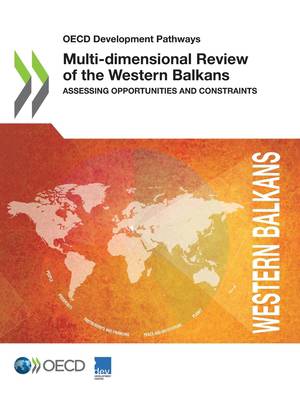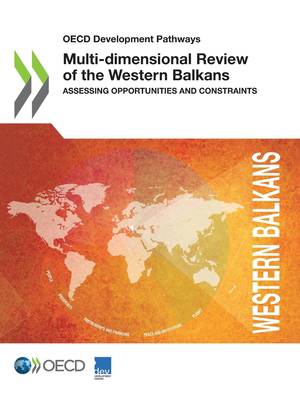
- Retrait gratuit dans votre magasin Club
- 7.000.000 titres dans notre catalogue
- Payer en toute sécurité
- Toujours un magasin près de chez vous
- Retrait gratuit dans votre magasin Club
- 7.000.0000 titres dans notre catalogue
- Payer en toute sécurité
- Toujours un magasin près de chez vous
Description
The Western Balkans region has come a long way over the last two decades in achieving economic and social progress. With a population of 17.6 million, the region today boasts a combined gross domestic product (GDP) of close to EUR 100 billion, an average GDP per capita of about EUR 5 400 and a comprehensive process of integration with the European Union.
This report provides multi-dimensional assessments across the economic, social, finance, governance and environmental pillars of sustainable development for five economies of the region. The region's location, its deep relationships with Europe and its academic tradition present many opportunities for future development, especially at a time when distances are shrinking further with digitalisation. Making the most of this potential will require collaboration in tackling challenges, which have been further exposed during the COVID-19 pandemic. Boosting competences and education, strengthening social cohesion and ensuring a green transformation towards clean energy and the valuation of the region's natural wealth, emerge as strategic priorities. Beyond practical and financial constraints, future solutions must address considerable institutional and governance challenges that remain across the region.
Spécifications
Parties prenantes
- Auteur(s) :
- Editeur:
Contenu
- Nombre de pages :
- 652
- Langue:
- Anglais
- Collection :
Caractéristiques
- EAN:
- 9789264391673
- Date de parution :
- 20-07-21
- Format:
- Livre broché
- Format numérique:
- Trade paperback (VS)
- Dimensions :
- 210 mm x 279 mm
- Poids :
- 1945 g

Les avis
Nous publions uniquement les avis qui respectent les conditions requises. Consultez nos conditions pour les avis.






